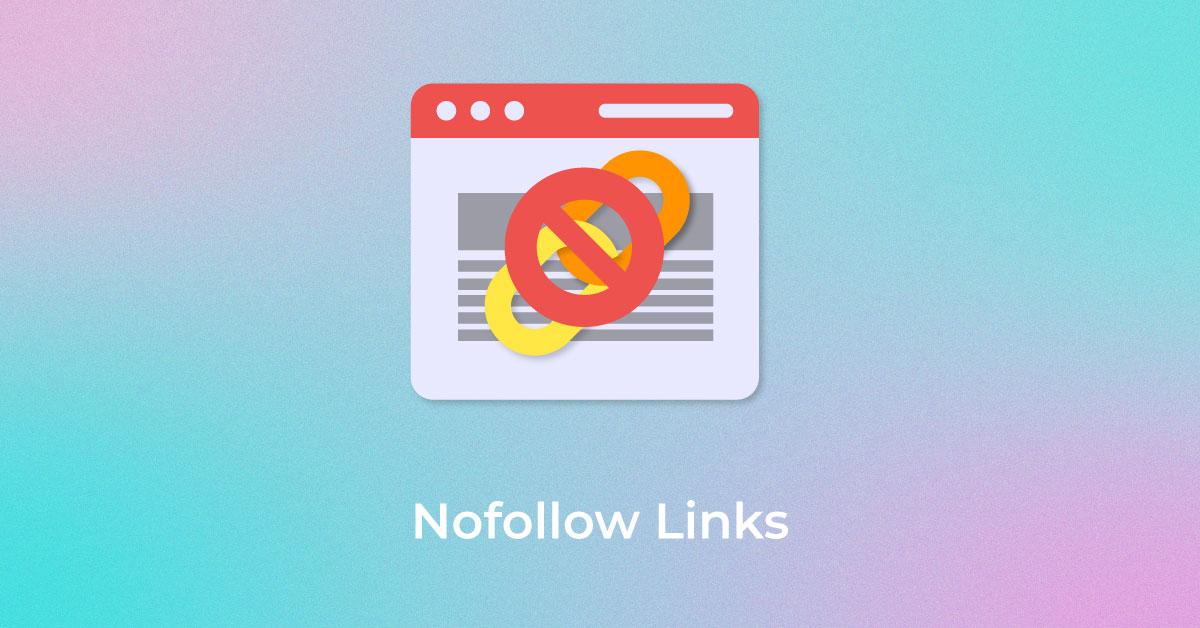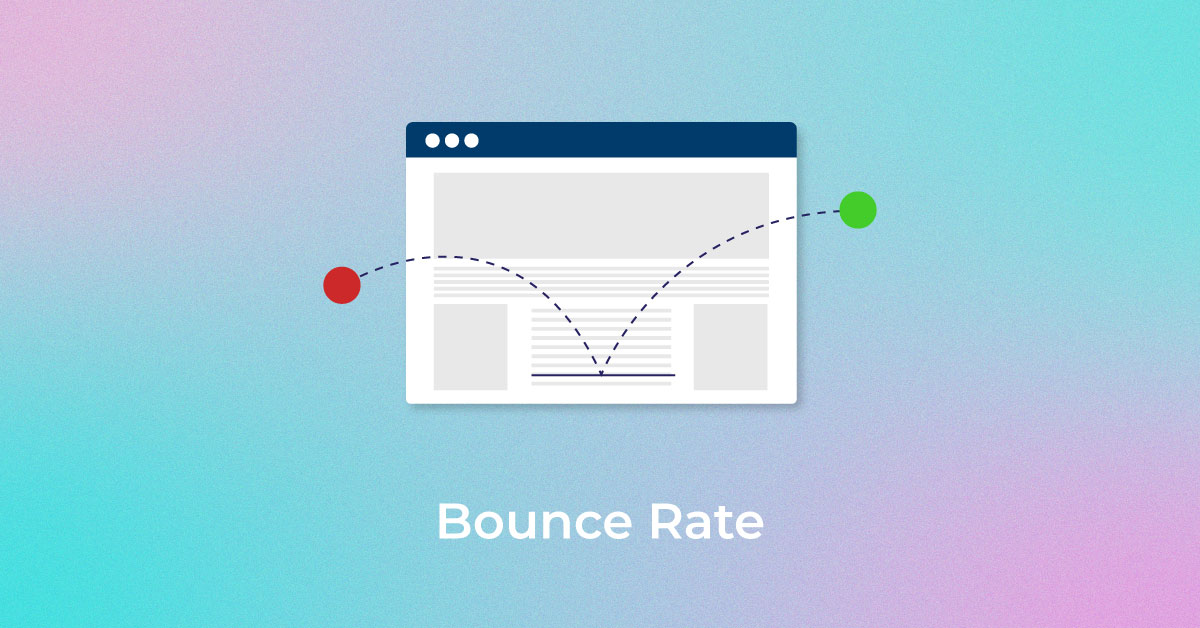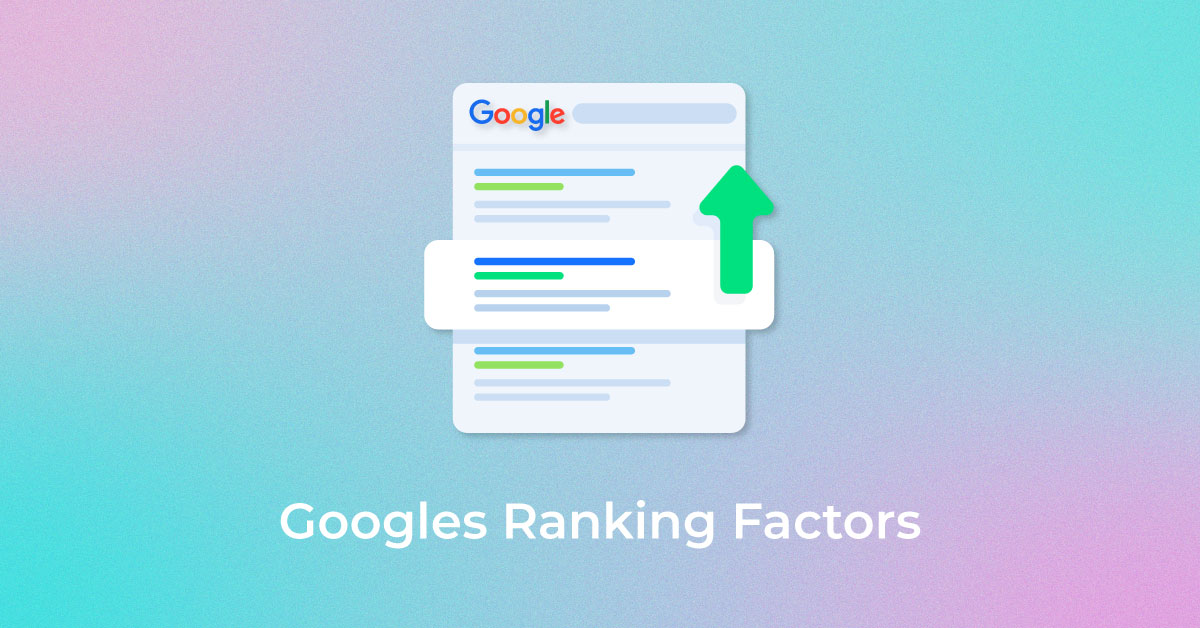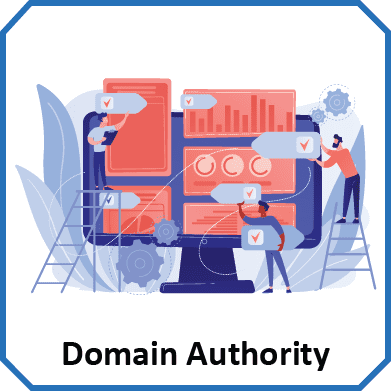In today’s hyper-competitive markets, the competition is unforgiving. Companies of all sizes are competing for consumer attention tirelessly. Websites are the modern storefront of organizations; tech-savvy consumers judge your products and services based on your website. Hence, it is crucial to ensure your website’s visibility on search engines such as Google, Yahoo, Bing, or Yandex.
Your website’s visibility depends on the quality of the content on your webpages. Good content attracts, engages, and delights your visitor traffic and converts them into prospects.
But how will you measure the quality of content on your website? How will you increase the visibility of your website? Are you puzzled by these questions? The catch is there are over 200 factors that can affect a website’s ranking, and it is almost impossible to optimise your site for all factors.
But that doesn’t mean nothing can be done. You could focus on one of the most important factors in website ranking – domain authority.
What is Domain Authority?
As the name suggests, domain authority is the measure of your website’s reputation as a thought leader on the internet. A website with higher domain authority ranks higher on search engines and contains quality content that engages visitors.
Developed by the SEO software company Moz, domain authority in SEO is a grade score ranging from 0-100, which gives us an understanding of how well the website performs in terms of engaging visitors and user sessions. This ultimately translates into the search engine rankings on the internet, which translates into how visible your brand is.
The brand’s visibility on the internet will further predict your company’s ability to churn revenue from your website. Today’s lean and mean organizations are constantly investing resources to increase the domain authority of their website.
To calculate your website’s domain authority, Moz considers more than 40 factors, including root domains, number of high-quality inbound links, and visitor behaviour on your website. Websites with a large number of backlinks, such as Wikipedia, will have the higher domain authority to the tune of 98 out of 100 (current domain authority).
How to Check Website Domain Authority?
It takes a long time to improve the domain authority of a website. Companies that increase domain authority regularly monitor website health and continuously produce good content.
Moz employs a logarithmic approach to calculating domain authority, meaning that it gets harder to increase domain authority as you keep growing your website. For example, it is fairly easy to reach the mark of 20 in comparison to increasing your domain authority from 50 to 80.
Hence, organizations deploy comprehensive marketing strategies that go on for years at a stretch. This includes blogging, guest posting, articles, e-books, and other lead magnets that attract visitors to your website and engage them with your content.
But before you start planning and charting the course of your epic domain authority project, it is important to know your current status. There are many resourceful tools today to check your domain authority.
Steps to Check Your Domain Authority:
Here is a popular method to check and improve the domain authority of your website.
- Visit the Domain Analysis page on Moz.
- Enter your website URL in the search box that appears on the website.
- Press the Analyze domain button and watch the magic happen.
The result will be a detailed report consisting of your website’s domain authority, linking root domains to your website, the number of ranking keywords for your website, its spam score, and a list of top pages on the site based on the number of backlinks.
What is MOZ Rank?
MOZ rank is another statistical tool developed by Moz that ranks websites on a scale of 1 to 10, where 1 is the lowest and 10 being the highest. It quantifies the popularity of specific pages on your website by measuring the number of backlinks that redirect users to your webpage.
It determines the value of these backlinks by analyzing the quality of those backlinking websites. If your website gets backlinks from high domain authority websites, your MOZ rank will increase continuously. However, if you get backlinks from low-domain authority websites that do not provide value to their visitors, it will impact your MOZ rank.
What is MOZ Trust?
MOZ trust is similar to MOZ rank; it also ranks websites on a scale of 1 to 10, where 1 is worst, and 10 is the best. However, the difference lies in the importance given to the kind of websites that link back to your websites. MOZ trust ranks websites based on the trust levels of the domains and websites that link back to yours.
For example, backlinks from trusted domains such as government sites, educational institution websites, and research labs will be considered valuable. As MOZ tries to explain,
“We determine MozTrust by calculating the link ‘distance’ between a given page and a ‘seed’ site- a specific, known trust source (website) on the Internet. Think of this like six degrees of separation: The closer you are linked to a trusted website, the more trust you have.”
How is the Domain Authority Score Calculated?
Domain authority is measured by analyzing the data from the Moz Link Explorer web index. It uses a machine learning model to predict the “best fit” algorithm that is the closest to the numerous link ranking data across thousands of actual search results.
Since the process of calculating domain authority is logarithmic and uses machine learning, your website’s score will fluctuate. For instance, if tomorrow, Facebook gains a few million backlinks, your website’s domain authority might reduce as a result of the increment in the highest domain authority.
It is important to keep in mind that DA is not an absolute measure; it is a comparative measure that shows your website’s expertise compared to the internet’s best websites.
What is a Good Domain Authority Score?
Since it is a comparative measure, a good DA score is directly related to the competitor websites’ SERP rankings. The objective is not to achieve the 100 mark but to improve domain authority beyond that of your competitor’s.
New websites always start with 1, whereas websites with more than 20 DA are considered to be upcoming sources of average content up to a domain authority of 50. Websites with domain authority above 50 are considered legitimate sources of knowledge. Hence, we must not be disheartened by the current domain authority but aspire to cross the 50 DA mark as soon as possible.
How to Increase Domain Authority?
There is literally no shortcut to increasing your website domain authority. Since the process is governed by the new best website every day, there is no fixed measure or tools to increase DA.
To improve a website’s domain authority, we need a comprehensive strategy that combines all the aspects of great content, worldwide distribution, attracting referrals, and a lot of patience. If your DA is currently 10/15, it will be easier to increase domain authority upto 30 or 40. However, once you reach 40, every incremental score will be more difficult than the previous ones.
There are several ways of increasing your domain authority. Let us walk you through the different ways you can improve the domain authority of websites.
-
Select a good domain name
Domain names are the address where you host your online store. Just as it is important to have an easy to remember address to your store, it is also crucial to have an easy to type address for your website. For example, avoid using special characters such as, ! @ # $ % * -_-. &
Visitors who search for your product and services will not type every special character you have used in your domain name. Find a domain name that is easy to remember and strongly relates to your company name or brand name.
As far as extensions are concerned, .com is the best domain extension since it is the oldest and has become an industry standard. However, today there are many other extensions available such as .co, .io, .tech, .online, .store, .live, .cloud etc. Choose an extension that relates to your audience and positions your company how you wish to be perceived by your customers.
-
Create quality content
Content is king. This is the universal truth today. If it weren’t for the arduous research that we did in writing this article, you would not have been reading this. Hence, make quality content a top priority. If you are wondering, what is quality content? Then the answer is simple.
Quality content are seen as well-researched, insightful, and helpful pieces of information such as blogs, articles, e-books, how-to guides etc. Quality content pieces help the reader identify existing problems and device solutions. These solutions could be a DIY guide or a call-to-action to buy or subscribe to your products.
Search engines such as Google rank websites based on the quality of content. They understand the quality of content with the interaction of visitors on your website. Therefore, if you wish to increase your domain authority which will increase your search engine rankings, invest in quality content.
-
On-page SEO optimization
On-page SEO is the exercise of integrating targeted keywords on different places of your website. These keywords are then crawled by search engines when visitors search for your products or services.
Here is a checklist to keep handy while conducting on-page SEO exercises:
- Keyword Density: Keep the keyword density between 0.5% to 1.5%
- Heading Tags: Use heading tags wherever necessary to let search engine crawlers know the breakup of your webpages.
- Targeted keyword: Select the target keyword of your website carefully. The right keyword is easier to rank, and the wrong keyword will be a waste of efforts in the end.
- Permalink structure: Create permalinks that are short and sweet. Keep it to the point and avoid using articles, prepositions etc.
- Meta Description: Do not forget to create keyword-focused meta descriptions for every page of your website.
- Keyword Rich Titles: Ensure that all your H1, H2, H3, H4, H5, and H6 tags contain the keywords you want to target in those sections.
- Image Optimizations: Search engines cannot look at the images; they read images as the alt-text mentioned in the code of your website. Do not forget to write meta-descriptions for all your images.
-
Off-page SEO optimization
The point of focus for most of the digital marketing teams today is Off-Page SEO. It is the process of creating a network of distributed content on various websites that will redirect visitors to your webpages. It is the central factor in calculating the domain authority of websites.
Your domain authority is directly related to the number and quality of backlinks that your website gets. Hence, off-page SEO exercises where you will write and publish content on different websites of your industry will ultimately boost your domain authority.
-
Technical SEO optimization
Technical SEO is the website and server-side optimizations that aid search engine spiders crawl and index websites better. Here is a checklist of things to do while doing technical SEO for your website:
- Use SSL
- Develop a mobile-friendly website
- Enhance your website speed
- Do not publish duplicate content
- Establish and display an XML sitemap
- Enable AMP
- Include structured data markup for your website
- Register with Google Search Console and Bing Webmaster Tools
-
Mobile-friendly website
Smartphones are the biggest source of traffic on the internet. Websites that are mobile-friendly get more visitors and hence are linked to a lot by users. While developing your website, ensure that all of your content and web-pages are mobile responsive.
-
Improve page speed
Pagespeed is the measure of how fast or how easy it is to load your website. Improved page speed renders your website within seconds and helps visitors have a seamless experience. To improve your website’s page speed, consider lazy loading images or using compressed and resized images with minimal animation.
-
Improve social signals
We live in a world where social media is the single most popular channel of communication. Including and distributing social signals all over the website will prompt visitors to take action and share your website content with friends.
-
Discover bad links
It is crucial that you remove all bad links from your website. It is equally important as gaining good quality links. Domain authority is the collective measure of all that’s good and bad with your website. Hence, backlinks from low quality and spammy domains will automatically flag your website as a low-quality website.
-
Publish articles frequently
Engagement is a continuous process. It is important that your visitors and readers get to read something great from you every now and then. Websites with an irregular posting and content sharing philosophy loose visitors and readers by the dozens. Hence, publishing articles regularly will continue to engage readers and increase the chances of getting backlinks from those visitors.
Why Does my Domain Authority Keep on Fluctuating?
Domain Authority (DA) is a score between 0 to 100 that shows how likely your website is to get listed on the primary SERP for your category. If you frequently check the domain authority of your website, you might have observed a few fluctuations. Such fluctuations can be because of a multitude of reasons including:
- Everyday Scoring: Since computing capabilities have grown exponentially, Moz can provide domain authority scores at a more granular scale. Since the data is observed across a smaller cross-section of the timeline, you should expect fluctuations. However, over a more extended period, the tool will provide you with a steady and reliable domain authority score.
- Broader Case of Comparison: The tool now has increased machine learning capabilities and provides relative scoring for each website against thousands of websites in the same category. The broader comparison gives room to frequent changes in possible rankings leading to fluctuating domain authority. Moz has been essentially working on a more comprehensive training data set for its domain authority scoring tool. Earlier, the comparisons were only with the top-ranking domains in each vertical. Now, the degree of comparison has extended to several websites at a time as the data quality has improved.
- Link Quality: Google is consistently investigating the quality of each DoFollow link your domain receives. The search engine focuses on pattern detection and as soon as an observable pattern is detected showing some form of spam-driven link building, your domain will lose considerable authority points.
- Inactive Website: When was the last time you updated your website? If you are in a competitive vertical with a static website, you are bound to witness some fluctuations in your domain authority.
- Malpractices: Even if the spam-driven link building patterns are not detected, you can still see a change in your website’s domain authority. Google uses several factors like keyword stuffing, plagiarism, etc., to determine your domain authority.
- Degraded Referring Domain: If one of the primary websites sending referrals to your domain is degraded in terms of its DA, your domain authority will also get impacted.
- Website Management Issues: If you have not titled your content appropriately or had your website down for any reason, it will impact your DA.
Measure your DA against your competition. That will give you sufficient guidance on whether you should be worried about sudden changes in your DA or not.
Domain Authority vs. Page Authority
Imagine the comparison between a part and a sum of the parts. Domain authority deals with the probable ranking of the entire domain on the Google SERP. Page authority, on the other hand, focuses on a standalone page’s probability of getting ranked. You can use the gap between the two to take corrective action.
Improve Your Domain Authority Today
Domain Authority is a science of its own. However, there is no “one size fits” approach to improving website domain authority. We hope the above-mentioned steps will help you get a head start on your domain authority journey. Ideally, entrepreneurs and business owners hire the services of an established SEO company like Infidigit. Infidigit provides end-to-end digital marketing solutions that improve your website domain authority and bring regular visitors. Contact us to know more!
Popular Searches
How useful was this post?
0 / 5. 0


















1 thought on “Domain Authority – All You Need to Know”
thanks